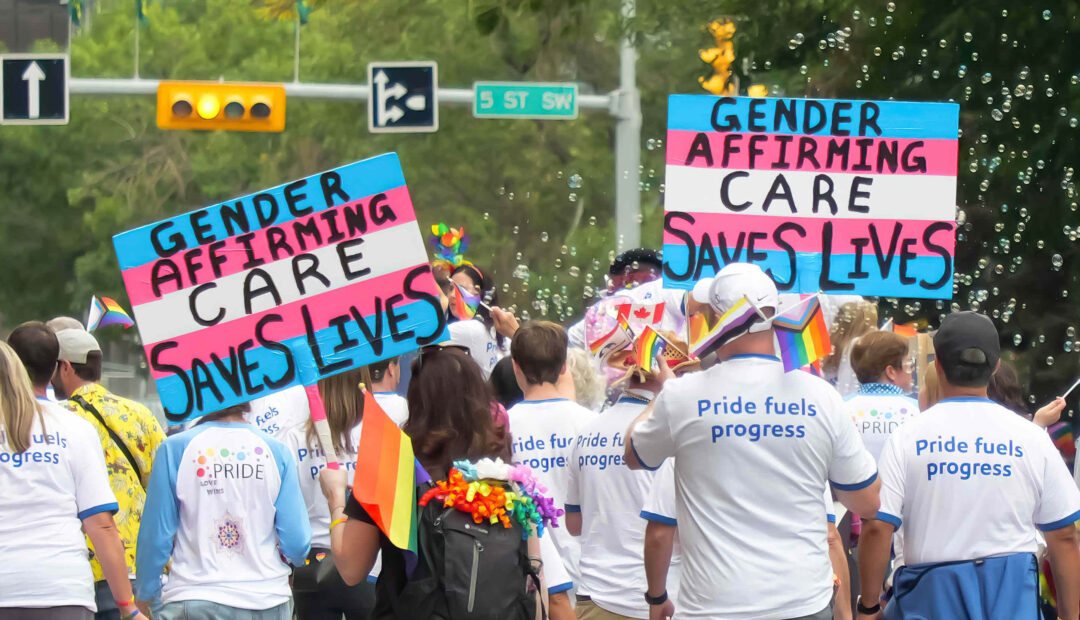This year, trans rights have been rejected and questioned incessantly by conservative state legislatures. A major point of conflict has been gender-affirming care which spans various forms of health care that aid trans people in their physical transitions. These include puberty blockers, hormone therapies, and gender-affirming surgeries. It is important to note that these medical treatments have only been made illegal in the case that they are performed on or prescribed to those wishing to transition.
In 2023, 22 states introduced bans on gender-affirming care for trans minors and adults, laws which create great suffering in the lives of trans individuals hoping to transition. Florida Governor Ron DeSantis has limited the freedoms and rights of trans people in their personal identity through bans on gender-affirming care, but also in the social realm. In Florida, trans people are banned from using bathrooms that align with their gender identity, are limited in their ability to participate in competitive sports, and are non-existent in educational environments after the “Don’t Say Gay” law criminalized the discussion of gender identity and other LGBTQ+ topics in classrooms. All of which delegitimize the experiences of trans people not only in Florida, but everywhere.
According to research findings from Columbia University’s Department of Psychiatry, gender-affirming care “greatly improves the mental health and overall well-being of gender diverse, transgender, and nonbinary children and adolescents.” Without access to the medical care they need, trans individuals could suffer from extreme gender dysphoria, which is defined by the American Psychiatric Association as “clinically significant distress or impairment related to gender incongruence.”
In 2021, the American Medical Association (AMA) reinforced their opposition to government intrusion in the practices of gender-affirming care, as these therapies and procedures could be life-saving. Other organizations that endorse gender-affirming care are the American Academy of Pediatrics, the Endocrine Society, the American Society for Reproductive Medicine, the American College of Physicians, the American Urological Association and more. These organizations (along with 20+ more) passed a resolution in June of this year “to protect access to evidence-based gender-affirming care for transgender and gender-diverse youth.”
In the official resolution drafted by The Endocrine Society, the organizations note “It is the responsibility of the medical community to speak out in support of evidence-based care. Medical decisions should be made by patients, their relativesm and health care providers, not politicians.”
Conservatives often make the argument that children struggling with gender dysphoria are not old enough to make the decision to begin physical transition treatments. But far-right extremists have blown this issue out of proportion and are quick to attempt to regulate a problem that isn’t as prevalent as they may think. Earlier this year, the Associated Press debunked the myth that children are obtaining transitional care at alarming rates and early ages.
When a child seeks gender-affirming care, they typically start with puberty blockers around the ages of 11-14 and move to hormone therapies that align with their gender identity. Surgeries are usually not offered to patients until they are 18 years of age or older. At the earliest, patients can agree to surgeries at the age of 15. And these decisions are always made after discussions with medical providers, doctors, and the patient’s parents.


